"Walk On - The Powerless Life" Series SHOUD 3
Presented to the Crimson Circle November 7, 2015
Original Website http://www.crimsoncircle.com/
[Dedicated to Pete Gibbons, a longtime Shoud attendee who transitioned on October 29, 2015]
I Am that I Am, Adamus of Sovereign Domain.
 Welcome,
dear Shaumbra. (Sandra brings his coffee)
Ah! As if on cue – magical, intuitive. Gracias (audience says “Yay!” and
some applause). Thank you. Mm. Can I get a hint of vanilla in there?
Welcome,
dear Shaumbra. (Sandra brings his coffee)
Ah! As if on cue – magical, intuitive. Gracias (audience says “Yay!” and
some applause). Thank you. Mm. Can I get a hint of vanilla in there?
SANDRA: Some what?
ADAMUS: Vanilla.
SANDRA: From where? (laughter)
ADAMUS: Ehh, your back pocket? The local store? It doesn't … please, no (more chuckles).
My dear friends, at least you can smile and laugh. Now – I'm telling you the end here in the beginning – but when you can't laugh about it anymore, when you can't smile about it, it's a lost cause. It truly is. Then this whole thing of being in the midst of a true psychosis (laughter) is … suddenly you're trapped in the reality. It's no longer just a game.
Oh, and how many of you know people who can't laugh about life? They can't. They take it so damn seriously. They can't smile and laugh and have their eyes shine. Not you. Not any of you, but how many people do you know – friends and relatives – oh, they're so trapped in this psychosis of life and life is truly become a psychosis for so many people.
I'll get to that later, but for now, welcome to our sacred gathering. And I have to ask why is it that the word “sacred” is so close to the word “scared?” (laughter) Transpose two simple letters and we have scared. Why is it that it's just as scary as it is sacred? Mm. It is scary, because you're going outside of the norm.
You're going outside of all the training, outside of all the rules. You're going outside of everything you're told is normal, because, quite simply, you can't stand normal anymore. You can't. You know there is something more, and there is, but how to get there? How to get there is the big question. You know that, in your everyday life, you've had it. You're done with it. You know that there's something more. You're becoming so disimpassioned, so worn down, run down – I'm just feeling your energies – so sick of it all. You don't want to die, but you don't really want to live anymore, not like that.
That's why, actually, you can still laugh. You know there is more. You can joke about it, because you know it's one big psychotic illusion. And it is. Oh! I'm going to piss some people off today. It might be you (laughter). Yes. Intentionally. Premeditated pissing off. “PPP” – premediated pissing off.
LINDA: What's new? (more chuckles)
ADAMUS: I'm going to do it a little better today than I've been doing it in the past. I'm going to do it a little bit more. A little premeditated pissing off, because (a) that's what you need, (b) that's what you want, and (c) that's what I like doing (laughter). So we're there.
I'm going to say some things that are not going to go over too well outside of our Shaumbra family around the world.
LINDA: Awww.
ADAMUS: And it'll be taken out of context, perverted and distorted and everything else. But, for everybody now who's going to send in the emails later, you already know there is going to be some truth in what I say. That's why … (Linda sighs loudly) why it's going … (Adamus laughs) I think we need a prerecorded applause, laughter, everything else. We're getting sighing over here. “Ohh! Anxiety, angst – what is he going to do today?” I'm going to do what you want me to do and what you want to do (Linda sighs again) – break through (applause and some holler “Wooo!”).
LINDA: You're clapping now. Now you're clapping!
ADAMUS: So I tell you right now, I'm going to say a few things that are going to be taken out of context. But, my friends, there is a bit, oh, there's a lot of truth in all of it. In all of it.
Pete
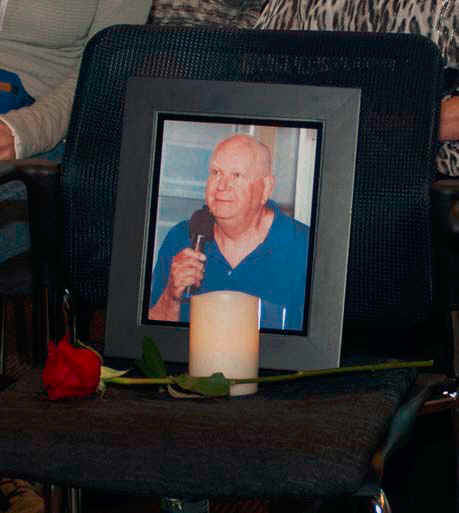 Before
we go any further too, I'd like to also – Pete willing – that I talk a bit
about his crossing over, because
several things happened. And Pete is right here. I'm not talking behind his
dead body (Adamus chuckles, some giggles in audience). It's funny – okay,
piss off number one. “Ohh! He's talking about dead people.” You're all
going to die. Laugh about it. Pete did when he crossed over.
Before
we go any further too, I'd like to also – Pete willing – that I talk a bit
about his crossing over, because
several things happened. And Pete is right here. I'm not talking behind his
dead body (Adamus chuckles, some giggles in audience). It's funny – okay,
piss off number one. “Ohh! He's talking about dead people.” You're all
going to die. Laugh about it. Pete did when he crossed over.
He had made a semi-conscious decision a little while back saying that he truly wanted to work with each and every one of you, all of you. How could he be in the best service? He looked at his life, he looked at his age, he looked at his body – his ancestral body – and he said, “I can best work and help Shaumbra from the other side.” He said that, in spite of all that we've talked about with the embodied enlightenment, he didn't feel that was for him. And that's fine. You don't have to choose it. It's not actually a goal.
He said, “It's not for me. I'm ready.” And Pete was not afraid of death. What little fear there was, he was able to go beyond that. And so, very quietly, he crossed over.
And the important thing is that the true crossing over occurred four days before his physical body died. It's not when your physical body goes that you're dead, you've crossed over. The crossover occurs before then, even in the case of nearly all what you'd call catastrophic accidents, even in the case of violence, war, things like that. There is a knowingness from the soul that its human condition is going to terminate that expression before it happens.
Many people dream of their own deaths before they die. I'm not talking about the ones where you're falling, falling, falling to the ground. But they, in a sense, rehearse the death before they die. Yeah, it gives them kind of a knowingness, a comfort when they finally do go over. Not all the details, but just the true crossing over. So Pete left four days before his body died.
Imagine what it's like for Pete, who's got a big smile on his face, looking at the body and saying, “Go! Go! Be done! Out! Gone!” And here, to his frustrations, the doctors were trying to revive the body. The doctors were trying to figure out what's wrong, and of course, they couldn't, because there was nothing really wrong per se; it was just Pete's time.
The family gathered around and expressed some vague and insincere tears, which … (a few chuckles) Piss-off day! (more chuckles) Okay (Adamus chuckles), here we go. Okay? Time for a little honesty here.
LINDA: Ohh!
ADAMUS: How many of you have been to a funeral and had the crocodile tears that were not terribly sincere? How many of you know other people who have gone to a funeral and just a week or two prior to the death of the person were talking about what a son of a bitch they were (Linda gasps), and they go to the funeral, “Oh! Oh! Oh!” (as if crying)
So it didn't alarm Pete, in particular. It wasn't a big deal. He had already gone beyond so many of the family connections. Already gone beyond. But it's a strange thing to watch, and I'm telling you this, it's kind of surreal, because some of you have already had kind of an experience with it. But it's strange watching yourself – I don't want to say you're looking down, that's kind of a human precept – but you're just kind of there and you're kind of not. You're kind of in the room, but you're kind of not. In a way, like Pete is here today, but he's also with me on the other side, kind of in both. And the doctors – boom, boom, boom, banging on your chest and sticking needles in you – and you're like, “Just let me go.”
And the family gathered around with the tears, but really, let's be honest, wondering about the will. (Adamus chuckles slightly) Edith, it's true. It's going to happen. You know, that's what humans do, “Boohoo – but what about the will?”
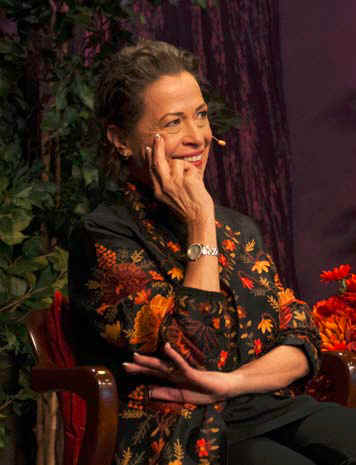 So
…
So
…
LINDA: Hmmm. (Adamus chuckles)
ADAMUS: Ah! Good. So Pete, looking down, really just almost impatient, waiting for the body to release, and even before it did, coming to the other side and realizing “This is more of reality than that on the other side.” Of course, I was there. Of course, other Shaumbra who have gone before in these past eight to ten years in particular, gone before to do the very same thing – to be there, to be there for other Shaumbra who are going to go into their embodied enlightenment; to be there because it is difficult to stay here. Pete will tell you that right away. It is very difficult. And there's no shame whatsoever in going to the other side. There's no real pain in death, if any of you have been fearing it. There's no bad. It's not like Pete feels incomplete at all. He feels very, very complete.
And he realizes that where he is now is not about ascension. He may never come back for another lifetime. Doesn't need to. It's not about ascension. It's actually really not about enlightenment, kind of not. It's about just being in the I Am. And Pete, tremendously happy right now on both sides of the veil, here to be here for each and every one of you who chooses to stay. And if you don't, there's no shame in it.
Pete was tremendously relieved of the physical body. His body was a chore for him, as it is for so many of you. But more than anything, Pete was relieved of being free of so many of the limitations of the human mind.
Now, the human mind does not die or leave when the being departs. And actually, even when the body dies, the physical body stops, the mind actually – the human portion of the consciousness, the human mind – actually continues on for a while. It doesn't integrate right away, unless a person is quite conscious. It takes a little while.
Pete was surprised that even after the body died that the mind was still there, still chattering away, and he was like, “Well, the body is dead. Shouldn't the mind, shouldn't the thoughts stop?” No, they can continue. For Pete, just a few days; for others, years – many years – afterwards; for all of you, for all of you, it will be easy. The mind stuff will stop right away, because you're coming to understand something called consciousness.
One of the – Pete had several interesting things to say, and he would like to come by the Shouds quite often actually – but one of the things he realized, and it was quite profound, he said, “Live life to the fullest or leave. Absolutely live it to the fullest,” and he realized on crossing over that one of the things that he did in his life was hold back. All humans do to various degrees.
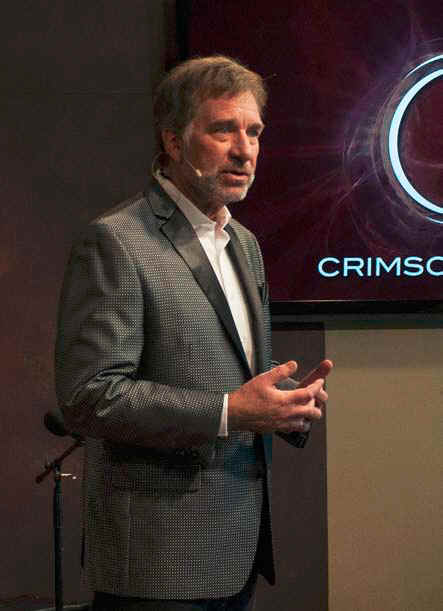 Live
it to the fullest. Live it without holding back. Live it like you saw in this
beautiful video.* That's life. That's life.
Live
it to the fullest. Live it without holding back. Live it like you saw in this
beautiful video.* That's life. That's life.
No holding back. “It doesn't matter,” Pete told me. “It doesn't matter what other people think about you. It really doesn't, because their judgments are meaningless. And anything they think about you is based on their definition of what they think they should be and what you should be. Live life to the absolute fullest. Crazy, if that's what others call it. It doesn't matter. Irresponsible – meaning irresponsible to other people. Responsible to self, but irresponsible, irregardless of other people. Live it to the fullest or leave.”
And he asked me to point this out today, because he left. He knew he wasn't living it to his fullest, and he didn't feel physically or financially that he could. So he left and was happy that he did, happy that he didn't drag it out for another, what, five, ten, twenty years.
Live Full or Leave
Live your life to its absolute fullest, or leave. That's a tough one, because most people are going to say, “Well, I'll try. I'll just try and I'll keep going.” As Pete observed right away, it's pathetic. It's pathetic when you keep going in the same old ways even when you know better. It's pathetic when you're afraid to live fully. It's pathetic when you live small, when you live little. Live it full or leave, exactly as he did – or leave – because ultimately you're only frustrating yourself. Ultimately, you're basically, in a way, really judging yourself when you're living falsely, when you're living small.
That's where the scared and sacred comes in. What you're doing is sacred. It really is. But it's scary, and that's the thing maybe you weren't expecting when you got into all of this. It's scary because your body feels different at times. You wonder what's happening to it, and for Shaumbra, in particular, about 99 percent of what's happening to your body are adjustments into a higher state of consciousness. It's not that you're sick. You'll get sick, but it's a type of releasing and cleansing. And I know it feels awful. You feel like sometimes you're going to die. You get going in your mind, “What's wrong with me? What have I done wrong?” Nothing. It's an adjustment. And if you do depart, your body gives out on you, the only thing that's going to happen is you're going to die, and you're going to die anyway. So let's laugh about that. (Adamus chuckles but no one else does) Eh, tough group. (Adamus chuckles again) Ah! When you can laugh about death, really your problems are over with.
But it's scary because, even beyond the physical death, it's scarier
what's going on up here (points to mind). The body is actually easier to
deal with than what's going on up here. And things start changing and they
get weird and it's disorienting and it's frightening and you're wondering if
you're doing the right thing. You feel 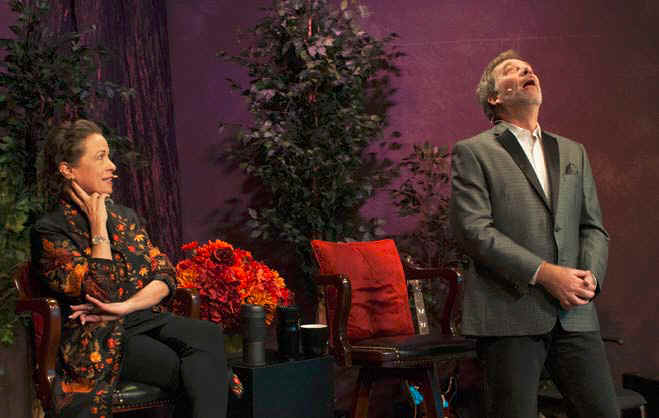 like you're actually getting paranoid. You're really not, but you feel like
you are, and you feel like all your thoughts are crazy. None of the
organization in the mind, the controls, none of the old tricks work anymore.
And then it feels desperate. Feels very desperate. What are you going to do?
like you're actually getting paranoid. You're really not, but you feel like
you are, and you feel like all your thoughts are crazy. None of the
organization in the mind, the controls, none of the old tricks work anymore.
And then it feels desperate. Feels very desperate. What are you going to do?
Of course, what you try to do is to go back, to go backwards, go back to what you were doing before, and you know it doesn't work. You know it doesn't work.
Then you feel like you're in this dark abyss, a void with nothing, and you are. That's a tough spot to be in. It's a really difficult spot, but that's when you get to know your Self the best. Not yourself as in your human persona, but that's when you get to know the I Am. That's when you discover, like Pete did, “I exist. Even in this nothingness, I exist.” That's it.
So sacred, yes; scary, very. Very. And the interesting thing is you are a tough group, because you keep asking for more (a couple of chuckles). And you keep laughing. Two of you laughed. You keep asking for more. It's a tough one, my friends, but we're going to have a little talk in a couple of months. I think I mentioned in a few Shouds back that February 14th we're going to talk and say, “Where are we? How are you in your allowing of the realization of enlightenment?” And I use those words very carefully – allowing realization. It's not working at it. It is not working at it.
Your human self cannot and should not try to do it. It is allowing. And how you struggle with it, how you work at it, how you toil with it, and how frustrated you get. It's about allowing it.
Sounds simple, but it's tricky, because it requires trust, letting go, allowing. Allowing what? You'll find out. You'll find out.
So let's take a good deep breath with that.
A Question
I have a question. We'll need a writing board up here, Linda on the microphone. It's my best time …
LINDA: Oh-oh!
ADAMUS: … when we do questions and answers with Shaumbra.
LINDA: Oh-oh!
ADAMUS: Yes. I know you'd just love to sit and listen to me, but I want to get your input.
So, a good deep breath. The question is, as Linda's prepared with the microphone – and I ask for no makyo answers here. By the way, that's one of the other things Pete mentioned as soon as he crossed over was, “Ohhh! I had a lot of makyo.” And it's like really, Pete? Really? Yeah. And actually he said one of the greatest things you could do is realize your own makyo and laugh at it. Realize your own makyo.
Okay, question: what is the biggest thing you worry about in your everyday human life as a human? The biggest thing you worry about in your – would you mind writing these? (to Tad) – in your everyday human life, the worry that takes up so much time and obsession in your everyday human life?
LINDA: And happy birthday, Andy.
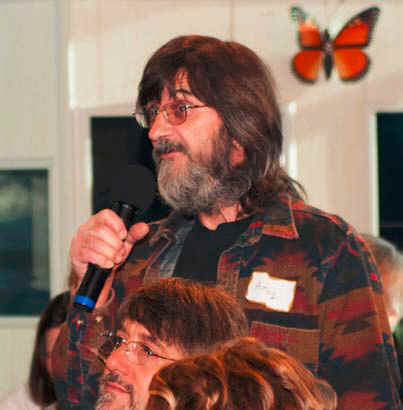 ADAMUS:
Happy birthday, Andy (some applause). Happy birthday, and many more to come.
ADAMUS:
Happy birthday, Andy (some applause). Happy birthday, and many more to come.
ANDY: What was the question? (laughter)
ADAMUS: Are you channeling Pete?! (more laughter) What do you worry about the most? As your human self, everyday life, what do you worry about the most?
ANDY: I unfortunately worry about the wellbeing of others. And I'm coming to the realization I need to concern myself with myself.
ADAMUS: Okay. Worrying about others. And how much of your time do you spend worrying about others?
ANDY: Half or more.
ADAMUS: Ooh! Ouch! There goes another good life. Worrying about others.
ANDY: Yeah!
ADAMUS: Yeah! (they chuckle) Mm. Houston, we have a problem. Okay, good. Just give me your gut feel, why do you do this?
ANDY: I felt I had to save the world.
ADAMUS: From what?
ANDY: It's turning out I need to save it from me (laughter).
ADAMUS: Good. I'm going to give you a little help on this one. A lot of time spent worrying about others – a great distraction for yourself. “I'm going to worry about the world” – pfft, for what, I don't know – “I'm going to worry about the world so I can distract myself from me.” Ooh, it's actually a brilliant creative distraction. How much have you helped the world by all the worrying?
ANDY: Not a bit.
ADAMUS: (chuckling) How much have you hindered it?
ANDY: Uh, I think there's maybe been some times I may have done that…
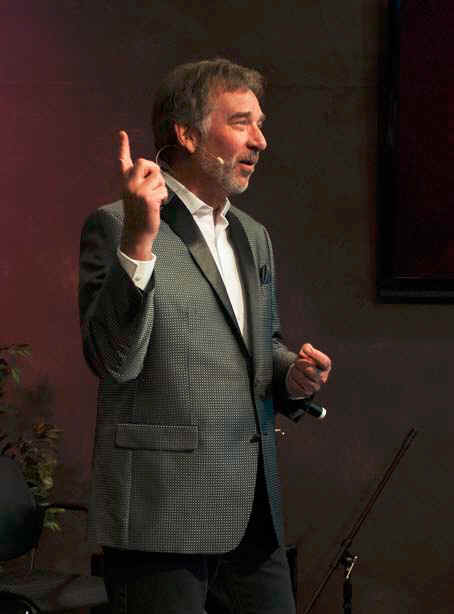 ADAMUS:
Nahh! Not a bit. Not a bit. No.
ADAMUS:
Nahh! Not a bit. Not a bit. No.
ANDY: Not at all?
ADAMUS: It has no effect whatsoever.
ANDY: Thank you.
ADAMUS: Yes, yes.
ANDY: Get rid of the guilt at least, right?
ADAMUS: Yeah. Yeah. Well, guilt or one would say, “Geez! That was a lot of time and it went nowhere.” So there could be a guilt in that. Yeah. Okay.
ANDY: Yeah.
ADAMUS: Great. But let's say what is the one little thing you allow yourself to obsess with about yourself? What do you worry about – when you take that little bit of time to worry about you – what are you worried about?
ANDY: My joy in the future.
ADAMUS: Okay.
ANDY: And by doing that, of course, I eliminate it in the present.
ADAMUS: Duh! Good.
ANDY: I'm learning! I'm learning! (some chuckles)
ADAMUS: But it's kind of fun when you realize it. You know, when you can laugh at it, it's kind of fun. It's like, “Oh, man! Look what I'm doing – worrying about the joy in the future so I have none now. The future never comes. I have no joy. I'll worry about other people instead.” (some laughter)
ANDY: Very well. Yeah.
ADAMUS: Yeah! No, and once you realize it, it's actually a lot of fun, because suddenly you're not caught in it anymore. Yeah. Then it's just a game.
ANDY: And then things start happening.
ADAMUS: They do. Good. Happy birthday.
ANDY: Thank you.
ADAMUS: Yeah. Good. Next. What do you worry about the most in your everyday human life? What do you worry about the most? And by the way, we're going to end with Pete. He wants to share his insights. You know, you die and suddenly you're a philosopher (laughter). He's laughing. Go ahead. What do you worry about the most?
JANE: Can I have two answers?
ADAMUS: (chuckling) You can have eight if you want, and that's barely covering.
JANE: Health and money.
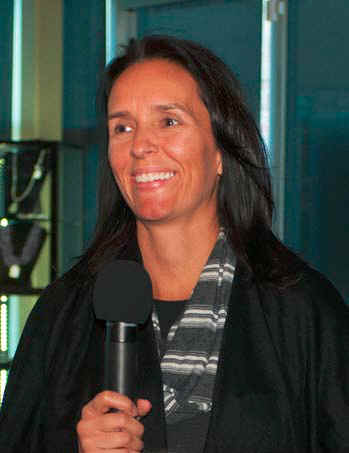 ADAMUS:
Health and money. Oh, good, good. How much of your time do you spend
worrying about your health?
ADAMUS:
Health and money. Oh, good, good. How much of your time do you spend
worrying about your health?
JANE: A pretty good amount.
ADAMUS: How much money are you spending on things …
JANE: A lot!
ADAMUS: (chuckling) Now we got a money problem! Ha! Funny how this works out – health and money. What's really going on here?
JANE: I'm distracting myself.
ADAMUS: Yeah. Yeah. Why?
JANE: Because it's scary.
ADAMUS: Your health or the distraction?
JANE: Living.
ADAMUS: Yeah, it is.
JANE: Going through this process.
ADAMUS: Yeah. I've got to ask you, what do you worry about your health? I mean, what about your health would cause you to worry? Are you sick?
JANE: No (they chuckle).
ADAMUS: See how much sense this makes?
JANE: Well, I have lots of …
ADAMUS: Have you ever been really, really, really, really sick? I mean, like going to die tomorrow kind of sick?
JANE: No.
ADAMUS: Flus, colds?
JANE: Occasionally.
ADAMUS: Yeah, yeah. Occasionally.
JANE: Yeah.
ADAMUS: Chicken pox, measles?
JANE: Probably.
ADAMUS: Yeah. Any sexually … no I won't go there (laughter). No. So you're telling me that you never really had any major health issues. Your family – are there a lot of health issues in your family?
JANE: Some of them have. Yeah.
ADAMUS: Not mental. Physical.
JANE: Yeah.
ADAMUS: Yeah, okay. But anything that really stands out …
JANE: M.S. (multiple sclerosis)
ADAMUS: … more than others? M.S. Okay. Do you have M.S.?
JANE: No.
ADAMUS: Okay, good. So you're spending all this time obsessing on it, and it's costing a lot of money. And then you've got to keep working at something you really don't want to be doing to make money to pay for the health obsessions, so you don't go broke.
JANE: Yes.
ADAMUS: Do you realize that this does not make sense?
JANE: Well, I've had a lot of body stuff over the last five years. A lot of nerve pain and stuff like that. But it's not like I've had cancer …
ADAMUS: What have the doctors said about your nerve pain?
JANE: They never know what's wrong.
ADAMUS: Oh! Geez! Am I psychic! Ah! What's happening, Jane?
JANE: Ascension symptoms?
ADAMUS: (Adamus chuckles) Sure. Yeah …
JANE: You know, like my foot. For the last two and a half years my foot hurts.
ADAMUS: Yeah.
JANE: And no matter what I do, it just keeps hurting.
ADAMUS: Just, without thinking, what does the foot relate to symbolically?
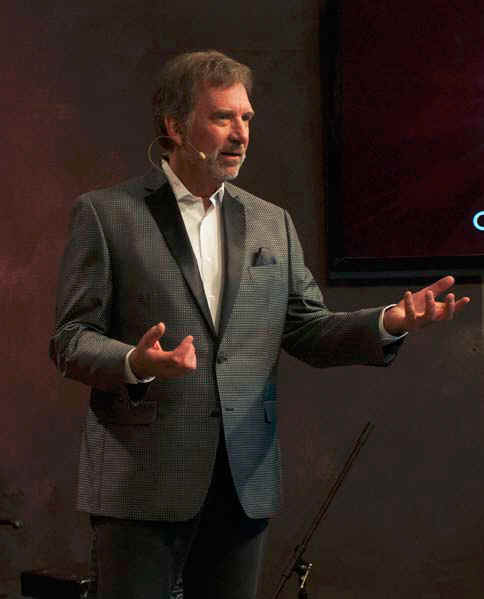 JANE:
Moving forward. Yes, I know.
JANE:
Moving forward. Yes, I know.
ADAMUS: Doing what?
JANE: Moving forward.
ADAMUS: Moving … just being on the Earth, being grounded!
JANE: Yeah, that's true.
ADAMUS: Yeah, stabilized.
JANE: The sole, yeah.
ADAMUS: So you've got this whole thing going. It's an interesting game, if you don't mind me saying that – maybe I'll piss you off.
JANE: Not at all.
ADAMUS: It's an interesting game. You want to get out.
JANE: Yes.
ADAMUS: I know that.
JANE: Yes.
ADAMUS: We talk.
JANE: Yes.
ADAMUS: But you don't know how to.
JANE: Yes.
ADAMUS: Okay. Today, we're going to go into it but you're not going to believe it. Today, we're all going to experience how to get out. We're going to go into this whole timespace bon beyond. You're not going to believe it at first.
JANE: Okay.
ADAMUS: And most of you won't. But then you'll start to realize, “Oh, crap! If that's the only door, I'm going to take it. If that's the only way beyond, I'm going to take that way,” even if it appears it's a one-way street going the wrong direction, even if it appears that you go through that doorway and it's just going to lead you to go crazy. But what is crazy? What is crazy? I'll get into that in a moment, it'll really piss people off.
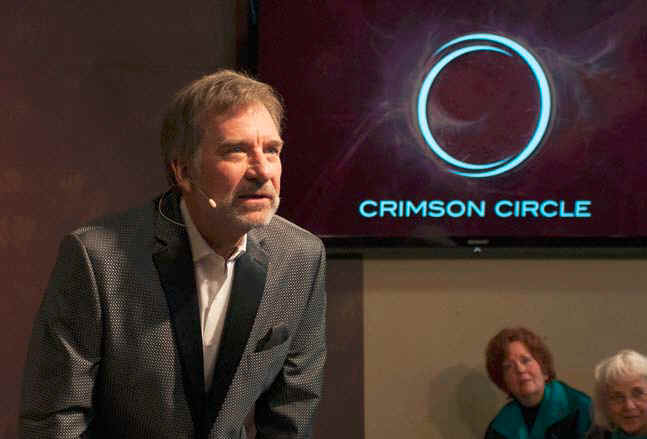 Okay.
I can tell you this right now. I'm going to look you in the eye –
it's dark over there, so got to get the lighting – there is nothing
physically wrong with you. There's just a few minor weird imbalances, but
they're the kind that adjust themselves. There's nothing …
Okay.
I can tell you this right now. I'm going to look you in the eye –
it's dark over there, so got to get the lighting – there is nothing
physically wrong with you. There's just a few minor weird imbalances, but
they're the kind that adjust themselves. There's nothing …
JANE: How?
ADAMUS: Pardon.
JANE: How do they adjust themselves?
ADAMUS: You let them. You allow the body to adjust. It does. The body is smarter than the mind. The body is smarter than the mind. So you just allow. There's always things going wrong with one's body from the day they're born till the day they die. There's something in the process of being adjusted. There are chemical levels, electromagnetic levels. There's imbalances between the organs. You shut up, you let them get back in balance, and they do. They do automatically. It's the beauty of the body. But you've got to be able to allow, and that's frightening, because it's like, well, if you're not, you know, watching over all of it, what could go wrong?
JANE: Mm hmm. It could get worse.
ADAMUS: Well, actually, it's only when you are watching over it that things go wrong and you go broke and you take all these … every time – one of these piss off statements – every time you take supplements, every time you get obsessed with an external therapy other than some bodywork, which you all need – a massage; your kind of work (to Lara) – other than that, every time you do this – you take the pills, you go to these weird therapies, you drink crystal water and all the rest of this crap – you're telling your body you don't trust it. (Linda makes a disgusted sound) And the body is so good, so smart, it'll say, “Okay, I'll play along with you and I will go out of balance because I love you, and this appears to be what you want.” So it's always going to be then having quirks and weird things happening. And you go to the doctor and they say, “There's nothing wrong with you.” So you go to another doctor until you find one who's willing to say “There's something wrong with you,” but there's really not! So it's a weird thing.
Could I ask you, dear Jane?
JANE: Yes.
ADAMUS: Are you ready – I mean, really ready, like crazy ready, like angry ready – to get out of this?
JANE: Yes!
ADAMUS: Or is it okay?
JANE: No, it's not okay.
ADAMUS: Okay. And are you ready, kind of like no matter what – Pete's like laughing and looking at you right now – are you ready to live or leave? Live or … (Linda reacts) What?! Live or leave. I mean just leave the building, leave Crimson Circle (some laughter). I've got to ask that – are you ready to live or leave? Are you at that point yet?
JANE: Yes! I ask myself that all the time.
ADAMUS: Okay.
JANE: And I'm ready to live.
ADAMUS: Yeah.
JANE: I just don't know how to.
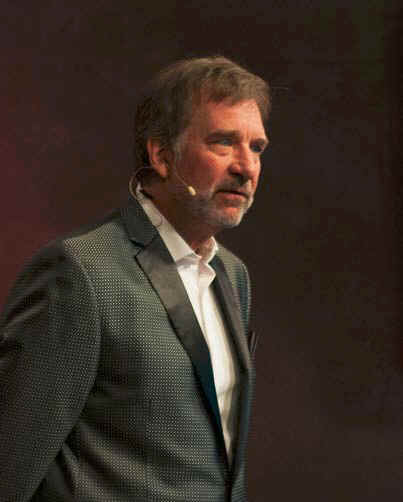 ADAMUS:
Okay. We'll go there. We will go there. And you're going to say, “Oh, this
– no. It's not going to work,” and then you'll realize it does. Yeah.
It's going to feel a little odd at first. It's going to make your body feel
really weird.
ADAMUS:
Okay. We'll go there. We will go there. And you're going to say, “Oh, this
– no. It's not going to work,” and then you'll realize it does. Yeah.
It's going to feel a little odd at first. It's going to make your body feel
really weird.
JANE: Great (laughter).
ADAMUS: Well, then you laugh at your body. Ha, ha, ha, ha, ha! You know, really, that's so important to laugh when you get these physical things going on. When you're at that point, when you can laugh at yourself, even physically, then you're there. You are ready for embodied enlightenment. But when that body is the big monster, it's always causing you anxiety and distracting you, then you're not ready for embodied enlightenment.
Good a couple more here. Yes. David?
DAVID: Yes.
ADAMUS: What do you worry about on the human everyday level?
DAVID: My life force energy.
ADAMUS: Life force en- … oh, how is it?
DAVID: Well, it sucks and frankly, I haven't been living. I've been … yeah.
ADAMUS: Life force, you mean no energy?
DAVID: Yes.
ADAMUS: Lounge around all day?
DAVID: Yes.
ADAMUS: Yeah. Can barely get up the energy to come to a Shoud?
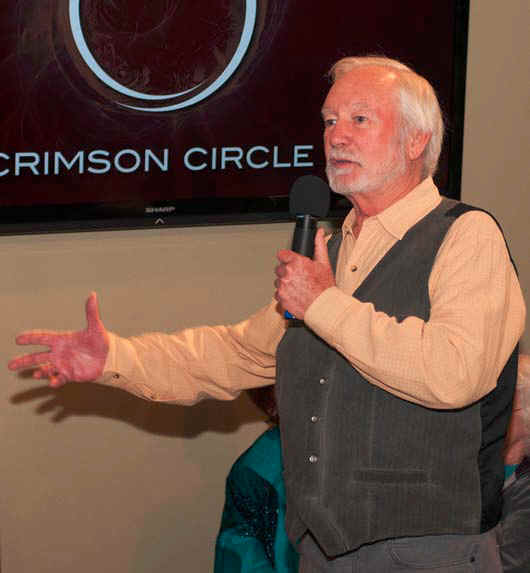 DAVID:
No, that's …
DAVID:
No, that's …
ADAMUS: That's a good one.
DAVID: That's a good one.
ADAMUS: Okay, good.
DAVID: Yeah.
ADAMUS: Difficulty just going out shopping?
DAVID: Actually, I enjoy shopping.
ADAMUS: Okay. Difficulty in going out for a good meal at a good restaurant?
DAVID: I enjoy going out.
ADAMUS: Well, geez! What's the problem here?! (lots of laughter)
DAVID: You know, I … but no, I don't do it that often. (Adamus is chuckling) And …
ADAMUS: Why don't you do it that often?
DAVID: Well, a money thing.
ADAMUS: Okay. This is weird.
DAVID: Which is bullshit, I know.
ADAMUS: Yeah, it is. It is. You know, actually you could have a good meal at … Cauldre's telling me Taco Bell (audience says “Eww”) No? Anywhere other than there, but, okay.
What I hear, David – and this goes for all of you, and Pete's so much a part of all this – when you're doing something you like doing, the energy happens to be there. But a lot of times you don't know what you really like doing. A lot of times you limit yourself, because you say it's about the money, and it's not.
DAVID: Right.
ADAMUS: It's kind of like Jane's issue – health and money. They go hand in hand. You spend a lot on health so there's no money, because it's all … and then she's got work and do all this. This is crazy. I mean, this is really crazy, but you know what? Every day billions of people – like approximately six billion – around the world get up and do just what we're talking about. But they can't talk about it because they don't realize, and they don't laugh about it because they're so caught in it. But we're there where we can talk about it and laugh about it.
I've checked you over, if you don't mind, I did a little exam while we were talking.
DAVID: Thank you.
ADAMUS: Yeah. And the …
LINDA: Ohhh! (laughter) What?!
ADAMUS: It was an energy exam.
LINDA: What?!
ADAMUS: And it was … (laughter)
LINDA: Geeezz‼
ADAMUS: You didn't mind. A little …
DAVID: No, actually …
ADAMUS: … nonintrusive energy exam. Your energy level is fine. It's fine. There's really nothing wrong with it. It's – oh, and Linda, write notes – it's the passion. It's the passion. And, for so many of you, it's like you're caught in that middle zone, you know, living a life that kind of sucks, living an inhumane life and wondering why your body's hurting, where your energy is and why you're broke. My friends, this doesn't make sense, none at all, and you know it.
DAVID: I know it.
ADAMUS: And you can laugh about it, and it's kind of …
DAVID: Ha, ha, ha‼ No more!
ADAMUS: And it's kind of funny. And the pa- … I want to redo our Passion. I know, the Passion class was originally done by Tobias. We can do Passion in two, maybe three, sessions.
LINDA: You have a passion to redo everything Tobias did.
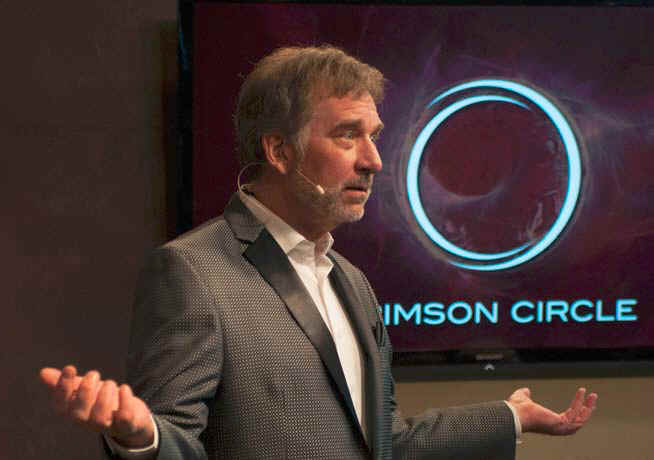 ADAMUS:
Absolutely (Linda giggles). But that is one of the issues right now, the
passion. When you're grueling through a life that you know is psychotic –
not yours, but the world is psychotic – when it's not right but you
don't know how to get out, it will drain your money, your energy, your
passion, your joy and all the rest of that. So let's redo that. Yeah. Okay.
ADAMUS:
Absolutely (Linda giggles). But that is one of the issues right now, the
passion. When you're grueling through a life that you know is psychotic –
not yours, but the world is psychotic – when it's not right but you
don't know how to get out, it will drain your money, your energy, your
passion, your joy and all the rest of that. So let's redo that. Yeah. Okay.
DAVID: Thank you.
ADAMUS: For Shaumbra. Yeah.
DAVID: Thank you.
ADAMUS: And now I'm really going to piss somebody off here – Linda.
LINDA: Haaah! Why am I on your radar?!
ADAMUS: Because it's going to be a free class.
LINDA: (howling) Ohhhh!
DAVID: Yayyy! (audience cheers and claps, Linda is laughing loudly) Yeahh!! All right!
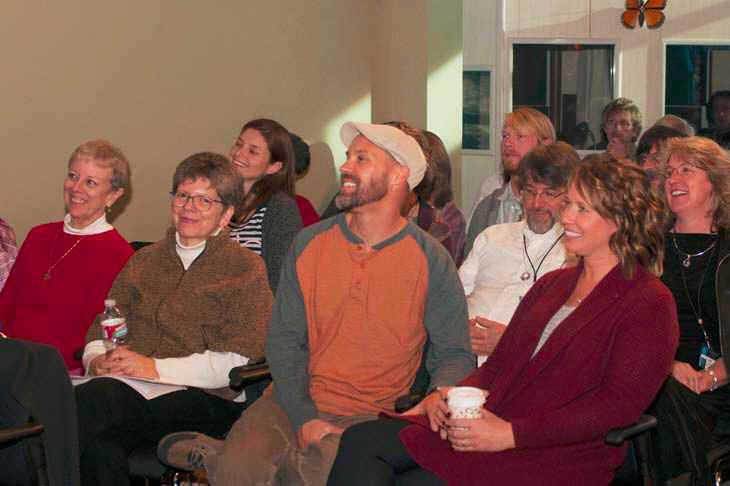 ADAMUS:
Okay.
ADAMUS:
Okay.
LINDA: Oh! We got nothing better to do! Let's do it!
ADAMUS: Got nothing better to do.
LINDA: Let's do it! (she continues giggling)
ADAMUS: It's such a point. It's such a something that is part of all of you. I'm looking around the room. I'm trying not to point anybody out in particular, but this whole thing of – Jane, you expressed it so well – you know, “I worry about my health and I worry about money,” but then you got to work and it takes the joy and the passion. This is Pete's Shoud in so many ways. Live well or leave. That's it. That's it. And we're at that point, and this is good – for me. For you, it sucks. It's tough (laughter). Live or leave. Live grand, live large, live well. Live in style or leave. It's come down to that, because this other way doesn't work so well.
Okay, two more. Quickly, quickly, we have so much to do today. Yes. Ahhh!
TIFFANY: Oooh.
ADAMUS: Gotcha, didn't we?
TIFFANY: Yep.
ADAMUS: You thought you were going to hide back there.
TIFFANY: Right, in a sense.
ADAMUS: Yeah, yeah, yeah.
TIFFANY: I'm not allowed to use my makyo, right?
ADAMUS: Yeah. No, no.
TIFFANY: Okay. Um …
ADAMUS: You can do anything you want though.
TIFFANY: You know, it's Shoud day. I get here and I'm like I don't worry about anything. I sit here and all of my … everything's working out really well.
ADAMUS: Sure.
TIFFANY: I mean, really, really well.
ADAMUS: Yeah.
TIFFANY: So, but then …
ADAMUS: Like before you got here or when you got here?
TIFFANY: No. No, on Shoud day I realize how great everything is.
ADAMUS: We should do this more often then.
TIFFANY: Yeah, every day. (Adamus chuckles) Every single day. No, I'm serious, because I sit here and you ask the question. It's like I'm not worried about a damn thing. Everything's frickin' awesome. And yet …
ADAMUS: Yet.
TIFFANY: And yet …
ADAMUS: Yet.
TIFFANY: … that's not always true.
ADAMUS: Okay. Tell me the things then …
TIFFANY: But it's kind of embarrassing, and I don't really want to talk about it.
ADAMUS: Oh, yeah, yeah. So how could anybody be embarrassed about Shaumbra watching from all over the world? (some chuckles)
TIFFANY: It's a little embarrassing.
ADAMUS: Let me put it another way. When somebody is really open and is truthful, everybody feels it and it helps everyone.
TIFFANY: True.
ADAMUS: So look what you're doing to save the world.
TIFFANY: It's a true story. All right.
ADAMUS: Oh! That was somebody else's deal, not yours (a couple of giggles).
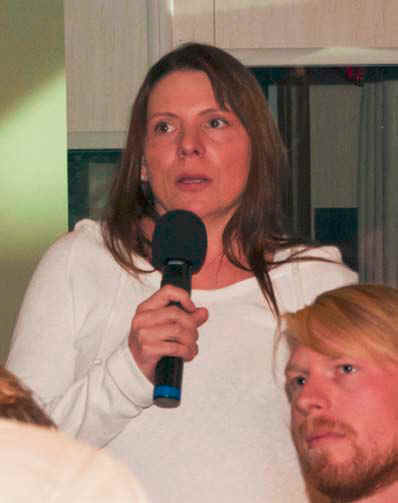 TIFFANY:
So the truth is when I get into that really stupid obsessive worry, it's
about aging.
TIFFANY:
So the truth is when I get into that really stupid obsessive worry, it's
about aging.
ADAMUS: What's wrong with that?
TIFFANY: I want to be young and beautiful forever.
ADAMUS: Okay, but that's not, I mean, why is that … I thought you were going to tell us something …
TIFFANY: I have no idea why.
ADAMUS: … really juicy.
TIFFANY: I don't know why it's important.
ADAMUS: I mean, just aging?
TIFFANY: Yeah!
ADAMUS: So what are you doing about this aging thing?
TIFFANY: Well, I'm trying to just stay young in every way I can.
ADAMUS: How do you do that?
TIFFANY: I feel young.
ADAMUS: How do you do that?
TIFFANY: Umm …
ADAMUS: “I'm young, I'm young, I'm young.” (Adamus chuckles)
TIFFANY: I take care of my skin and I run around and I do yoga.
ADAMUS: Okay.
TIFFANY: And I play.
ADAMUS: Yeah.
TIFFANY: So I feel young. So it's silly.
ADAMUS: Can I be really open with you?
TIFFANY: Please.
ADAMUS: Not (Adamus chuckles).
TIFFANY: Please.
ADAMUS: But you abuse yourself.
TIFFANY: Uh huh.
ADAMUS: Why?
(she pauses)
I mean, even mentally …
TIFFANY: For some reason I …
ADAMUS: The self-mental abuse, the biggest thing.
TIFFANY: Yeah.
ADAMUS: But sometimes then you do it in other ways, but why?! Boom! Boom! Boom! Boom!
TIFFANY: I think it's just a habit. I agree with you, it is abusive.
ADAMUS: Okay. But I'll point out …
TIFFANY: I'm find it more hilarious all the time at least.
ADAMUS: Good. Good. At least laugh at it …
TIFFANY: Yeah, I do.
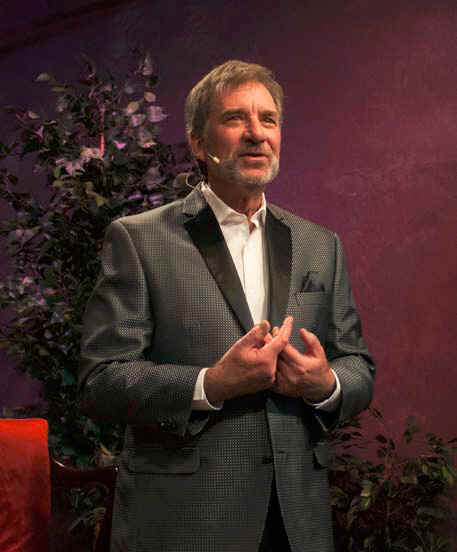 ADAMUS:
… before you hit yourself (Adamus chuckles).
ADAMUS:
… before you hit yourself (Adamus chuckles).
TIFFANY: I do. I do. And like I said, Shoud day I come and I'm just – everything's great. I mean, I look at everything and I'm making money. I'm having fun. I'm only doing the work I want to do. I have all these beautiful friends.
ADAMUS: Yeah.
TIFFANY: I mean, everything is great.
ADAMUS: And, but what about the anxiety, close to depression at times? Where does that come from? Why is that there? Why is the abuse there?
TIFFANY: I think it's because I have to deal with other people (laughter, especially from Linda). If it was just me and my friends, then it would be easy.
ADAMUS: Yeah.
TIFFANY: But other people say things and think things and do things and then I get a little, I get a little …
ADAMUS: I'm not going to buy that answer, if you don't mind.
TIFFANY: Okay.
ADAMUS: It's a good excuse, but – I mean, it's partly true, other people can really take your energy – but I see your darkest times are when you're with yourself. And like …
TIFFANY: Okay, how do I stop that?
ADAMUS: Good question (she giggles).
TIFFANY: I'm ready.
ADAMUS: Oh, you want me to answer!
TIFFANY: Yeah.
ADAMUS: Ah, okay.
TIFFANY: Yeah, I want you to get …
ADAMUS: I'm going to get into that in a little bit, but I want you to realize you, like so many, take that one step forward and then you beat yourself up, and you feel guilty about taking a step forward. It doesn't make sense. Okay? That's psychotic.
TIFFANY: Mm hmm.
ADAMUS: Good. Thank you. And thank you for your openness.
TIFFANY: Thanks.
ADAMUS: One more and then Pete.
LINDA: One more.
ADAMUS: Yes.
LINDA: Okay.
ADAMUS: We're getting all these good aging. So it's really not about aging. There's a lot of other things. Yes.
SAMUEL: Yes. What do I worry about?
ADAMUS: Yes.
SAMUEL: Eh. How I'm receiving and how I'm being received a lot.
ADAMUS: Very good. Excellent.
SAMUEL: And …
ADAMUS: And … go ahead.
SAMUEL: Well, I relate to how that finished, of taking a step forward and finding anxiety with that and then beating myself up a bit about it.
ADAMUS: Yeah. And ultimately it's really, in a way, about how you're receiving yourself …
SAMUEL: Yeah.
ADAMUS: … as seen through the eyes of others.
SAMUEL: Yeah, yeah.
ADAMUS: Yeah. And how are you doing on that?
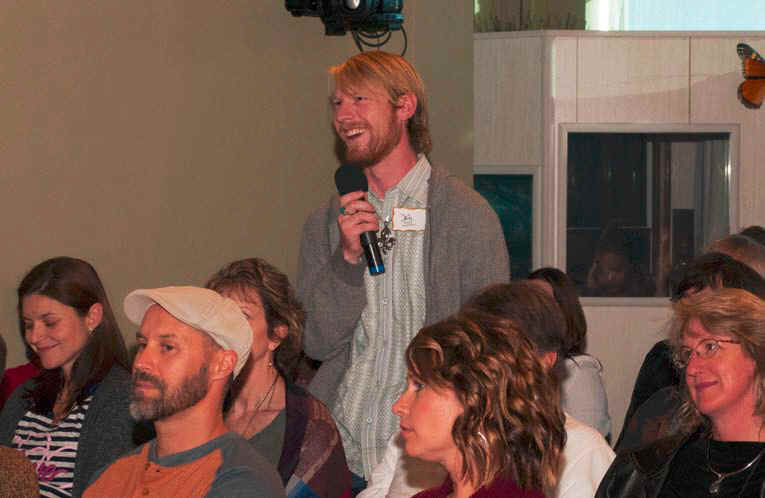 SAMUEL:
Lately, not well.
SAMUEL:
Lately, not well.
ADAMUS: (chuckling) Good. I mean that. Why? Why isn't that working out so well?
SAMUEL: Umm …
ADAMUS: If you had to say how other people would define you, what words would you use?
SAMUEL: How other people define me?
ADAMUS: Yeah, yeah.
SAMUEL: Independent.
ADAMUS: Yeah. That's a bad one. “Oh, that damn independent guy.” (some chuckles) What else?
SAMUEL: Intelligent.
ADAMUS: “Ughh! Guy thinks he's so smart.”
SAMUEL: Yeah, I mean, you're mimicking the process and how I use it against myself.
ADAMUS: Oh, absolutely. Yeah.
SAMUEL: Yeah.
ADAMUS: And what else?
SAMUEL: Funny.
ADAMUS: Funny. They use that as a negative?
SAMUEL: No. I'm not saying they're negative things.
ADAMUS: Okay. How they perceive you, okay.
SAMUEL: Yeah. That was the question, right?
ADAMUS: Are you funny?
SAMUEL: I laugh at myself sometimes (laughter).
ADAMUS: Good.
SAMUEL: Yeah, yeah.
ADAMUS: What else? There's one other one in here, how you think people perceive you.
SAMUEL: A bit ridiculous maybe.
ADAMUS: Ridiculous.
SAMUEL: Yeah, or insensitive.
ADAMUS: Yeah.
SAMUEL: Yeah.
ADAMUS: Insensitive or maybe unrealistic.
SAMUEL: Yeah, yeah.
ADAMUS: Yeah. Unrealistic. And what line of work are you in, my friend?
SAMUEL: Right now I'm in consulting, sales, dealing with clients about their dreams.
ADAMUS: There you go. Thank you.
SAMUEL: You know.
ADAMUS: So, but this ties in so perfectly. So the way you perceive how they perceive you is intelligent, which they would call arrogant; funny, which they would call a warped sense of humor, kind of crazy. Independent, meaning …
SAMUEL: Don't give a shit.
ADAMUS: Yeah, yeah, yeah.
SAMUEL: Yeah.
ADAMUS: Yeah. It's all about you and nothing else.
 SAMUEL:
“What's this guy going to do for me?” Yeah.
SAMUEL:
“What's this guy going to do for me?” Yeah.
ADAMUS: Yeah, yeah. And here you are doing very creative work dealing with people's dreams, which is really … the work you're doing is all about your dreams ultimately.
SAMUEL: Yeah.
ADAMUS: But you use that platform of the work you do consulting with their potential patents and copyrights, because you do use others to perceive yourself.
SAMUEL: Yeah.
ADAMUS: And you can see your own dreams through their dreams.
SAMUEL: Yeah.
ADAMUS: It's a beautiful set up.
SAMUEL: Uh huh.
ADAMUS: But what happens if you stop using others to perceive yourself?
SAMUEL: That's the scary thought. I don't get very far into that.
ADAMUS: Yeah. Yeah. Okay.
SAMUEL: Or I do and it becomes big very quick. It becomes kind of outside of my reach at the present time.
ADAMUS: Right, easier to see yourself through the eyes of others.
SAMUEL: Yeah.
ADAMUS: Other humans are great mirrors for yourself, because you'll see right away are they, you know, like you're some bad odor or are they laughing at you? Are they drawn to you or away from you? And it provides kind of the measurement, “Should I be drawn to myself, or am I offended by myself?”
SAMUEL: Yeah.
ADAMUS: It's very common. Thank you. Thank you.
And Pete, finally. Would you hand the microphone to Pete? Pete, your answer for this. What is the thing that you worried about the most? (Linda puts the mike to Pete's empty chair) Okay, thank you. That was a good answer, and would you put that on the board please. So … (laughter, Tad writes “Nothing”) Oh! Pete's saying maybe I should say this out loud. You couldn't hear Pete? (someone says “No”) A little louder, Pete.
(slight pause)
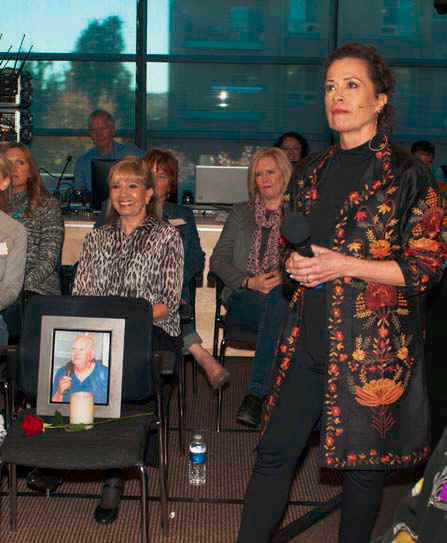 No,
that's not working, Pete. Pete's answer is that he worried the most about
whether he was doing it right. That was his biggest worry, “Am I doing it
right?” – in the eyes of other people or how you see yourself through
other people. “Am I doing it right” in terms of “Am I controlling
myself enough to keep my health and my finances?” In terms of “Am I
doing it right,” or also, “What am I doing wrong? My energy level is
low. What am I doing wrong?” And then you try to think your way into all
this, and it doesn't work. It does not work. And that's what Pete means when
he says, “Live well or leave.” That's it.
No,
that's not working, Pete. Pete's answer is that he worried the most about
whether he was doing it right. That was his biggest worry, “Am I doing it
right?” – in the eyes of other people or how you see yourself through
other people. “Am I doing it right” in terms of “Am I controlling
myself enough to keep my health and my finances?” In terms of “Am I
doing it right,” or also, “What am I doing wrong? My energy level is
low. What am I doing wrong?” And then you try to think your way into all
this, and it doesn't work. It does not work. And that's what Pete means when
he says, “Live well or leave.” That's it.
He spent, as many of you spend, a tremendous amount of time worrying “Am I doing it right,” whether it's spirituality, whether it's your job, whether it's your health, whether it's aging or anything else. “Am I doing it right?”
There is no right. There is not anymore, not for you. There's maybe right and wrong for people out there, but you get to this point and there's nothing about right or wrong anymore. It's a very difficult thing because your mind will scream out. Your mind will almost insist, because it's used to judgment-based life, right and wrong.
You get to this point and it's a very frustrating one. You want to do it right. You want to do so many things right. You want this thing called enlightenment or embodied realization because you know it's there. But you don't know if you're doing it right or not. And then there is that desperate attempt by the human to try to do it right. It cannot, and I want you to remember that point until it's so realized within you. It cannot. That human cannot, at all.
Most people spend their whole life trying to make their little human life better. They pray to gods to have a little bit easier life. They pray to God, not for enlightenment, not for realization, not for clarity at all; they just pray for a few more dollars to spend going to a few more physicians. They pray that a few more people will like them a little better. They pray for an easier life. And, my dear friends, it's not going to happen. It's not going to happen, and I say that with a big smile.
Human Life
Life is truly a pain in the ass (a few chuckles). Human life is truly a pain in the ass, and this is now when I launch into my “I'm going to piss a lot of people off” tirade.
Human life is inhumane. It is. Life and humans have gotten to the point of being pathetic. Pathetic, really sad, and Pete, if anybody, is nodding his head and saying, “Yes,” because he realizes. He's a fresh one, he just crossed over (some chuckles), and he realizes that there's all this talk – “Oh, we should love life. We should love other people.” Screw that. I mean really screw that, because what I see constantly is people trying harder and harder and more desperately to make the little selfish human life better. And you know that it doesn't work.
You've gone beyond that point saying, “I'm just going to clean up the little box that I live in. I'm going to try to make it tidier. I'm going to make myself happier. I'm going to keep taking happy courses and happy pills.” It doesn't work. It comes to a point where you realize that life is really pathetic.
Life should be an experience, but that's long gone out of, really, life on this planet for humans. Life can be an amazing beautiful experience, but it's long gone on this planet. Humans are suffering. Humans are going crazy and it's going to continue. I mean, in these coming years you're going to see it more and more. They are going to go crazy, because life has become inhumane. Life has become – well, imagine this.
You go to the zoo for the day and you're thinking, “This is going to be a grand experience going to the zoo, and I'm going to see the different animals. I'm going to buy some zoo stuffed animals to take home and I'm going to eat zoo food and cotton candy and popcorn and soda and all that.” It's a fun day. You go to the zoo and you start wandering around. You go to the monkey house and you go to the lion cages and you see the elephants. You get so caught in it that you forget that you're in the zoo. You forget that you came there to have an experience, to visit. And pretty soon the outside world, the reality, the real reality fades away. You forget. Now you're trapped in the zoo and pretty soon you're in one of those cages. And pretty soon you're stuck. You're trapped. Pretty soon you're sitting in the cage and you're noticing people are coming by taunting you, looking at you, and then pretty soon you're growling at them (a few giggles).
You're so trapped in your cage in the zoo, and what you do is you try to clean the cage and you pray for a little better food. You pray for a little bit more heat on those cold nights. You pray for a little bit more companionship from the others who are locked in your cage with you. You forgot that it's not reality. You forgot that this is not real. But you insist on it. You work at it. You try to be a better caged animal in the zoo. You try to be a little smarter than a few of the other animals. You try to keep from aging in the zoo. You try to be a very pretty looking monkey in the zoo. You forgot that you don't belong there. And worse than that, everybody else around you has forgotten also.
It's psychotic. I mean it's really psychotic. The real psychosis is not the people who are trying to be independent, not you, not the ones who are saying, “This isn't right.” The ones who are psychotic are the ones who are trying to make their cage in the zoo a little bit better, and it's not you.
So you're in this quandary, my friends, and the quandary is stuck, kind of in that middle place. Life, life in the old way, which was psychotic, is psychotic. It is an inhumane world right now. Just polishing the edges – pretending that we're all happy, pretending that life is going to be better tomorrow – sucks. It doesn't work, and you know that. You're at that point.
You're at that point of – it's not a bad point either – at the point of almost a breakdown. “What is next? Where do we go from here in this crazy, psychotic, pathetic world?”
There's going to be those who say, “Ohh! Adamus is talking bad about humans. We love humans. We're going to do a prayer circle tonight with candles and chanting.” You're doing it inside your cage. You're doing it inside the zoo, and it's not real. And you can do it. You'll feel better until tomorrow morning or maybe the next day, then you're going to be right back to where you were.
They're going to say, “Adamus doesn't like humans. Adamus is so arrogant.” No. I know, I feel your pain. I feel your feeling that you're going to explode, feeling that you don't know if you want to stay or you want to leave. That's the worst, as Pete will tell you.
Live well or leave, otherwise you're going to drive yourself crazy. Not just mentally human crazy, that'll eventually go away, but soul crazy. I mean deep crazy. You don't want that; like what I like to refer to as Red Lion crazy, and there's no need for it at all.
 This
world is psychotic. I'm not talking bad about humans, people. Humans are
fine, but they believe in this stuff. They believe in love. They talk about
love and what I see from so many is neediness. They talk about charity and
what I see from so many is guilt. They talk about happiness and all I see is
the carrot in front of the horse getting them through another day. They talk
about their religions and their gods, but all I see is control. They talk
about progress and all I see is distraction. They talk about doing the right
thing for the good of all, and all I see is they're trying to get more for
themselves.
This
world is psychotic. I'm not talking bad about humans, people. Humans are
fine, but they believe in this stuff. They believe in love. They talk about
love and what I see from so many is neediness. They talk about charity and
what I see from so many is guilt. They talk about happiness and all I see is
the carrot in front of the horse getting them through another day. They talk
about their religions and their gods, but all I see is control. They talk
about progress and all I see is distraction. They talk about doing the right
thing for the good of all, and all I see is they're trying to get more for
themselves.
Am I a bit jaded about humans? No, I love humans. I am, I was one. I say 'I am, I was' because I've been there, and I still am. I still relate to it. I still shine my humanness where I go, but I have also gotten out of the zoo. It took 100,000 years. Did I ever tell you the story? (laughter, someone says, “Haven't heard of it” and “Do tell”) Do tell, please. One of these days the movie, the movie that David's always wanted to do. The movie “St. Germain and His 100,000-Year Crystal.” Ah, it would be a great movie. And who's going to star in it? Somebody – Cauldre's saying Robert Downey, Jr. Yes.
So 100,000 years just sitting in a crystal. That's the movie. And then one day, “Oh, I got myself in here, I can get myself out.” And that's the movie. It takes about five minutes to do. You know, that's it! (Adamus chuckles)
Yes, I am a bit jaded right now about humanity, because it has gotten so stuck. Communications has in one way kind of helped with people's freedom and independence, but you know what happened? With all the great technology, communications, global connectivity and all the rest of that, humans enjoyed a brief moment of a little bit more freedom, and then took that very technology and those communications and everything else and immersed more deeply into their cage in the zoo. They used that very thing that could have provided liberation and more freedom for this world, and they have now used it for even more psychosis, getting stuck.
You're in a funny place – ha ha ha – funny, that you're right in the midst of it. You've got that gravity pulling at you every day and every moment, and yet you know it's not real. You know there's something more. You're interesting because, as tough as things have been, you still want more. And you're going to insist on it, which is why I love you. You're going to insist on it until you're out of it, until you've walked out of the cage and the zoo, and can laugh at it.
And then, once that happens, my friends, the things that you worry about here, once you go beyond, you get out of the zoo, you stand outside of the gates and you laugh at it, you realize it was just an experience; you get out, then at that point, then you can walk back in any time and you'll never get stuck again. You'll never get drawn into it by the gravity of the zoo and the cage and everything else again. Never.
That's when, my dear, the aging stops, in a way, because you're timeless at that point. But you can't think your way through it from the pathetic – sorry – pathetic human standpoint, the selfish human. You can't overcome your health or your financial problems from within them. You cannot, and that is my point today.
 I've
said it before, if you tuned in to try to get something new. I'm going to
keep saying it in different ways until you get that big “aha.”
I've
said it before, if you tuned in to try to get something new. I'm going to
keep saying it in different ways until you get that big “aha.”
The health problems, the focus on health is psychotic in itself – neurotic, both – and there's no blame in it at all whatsoever. And you're not going to fix it. It will get worse. It'll get worse, as with all the other things, because you keep immersing deeper and deeper. The gravity has got you right by the legs and it's dragging you down in.
You're not going to get there through your humanness. So once you realize that, once you're ready to let go, once you realize this is one great big crazy world and you're not going to fit in, you're not going to stop your aging or stop your health problems or stop any of those other things from within the cage in the zoo. You're just not. Once you realize that, then all of these things suddenly clear up on their own. Not because you're working on your health or because you're working on your aging or your money or anything else, because you've gone beyond. You've walked beyond all of that.
Then they balance. Then you never worry about health again, or if you do, you do it in a fun way. In a way where it's just now a game, but then you get tired of the game and you move on to something else.
I'm upset about the world right now, because I know what it can be. I know what an experience it can be. I'm upset because I see the gravity, I see the mass consciousness dragging people deeper and deeper and deeper within. And what do they do? They take pills. They take all sorts of therapies. They kill each other. They war. This is a planet that continues to be at war. They're thieves. They're robbers. They're warriors. And I know some of you are already writing your emails – “Adamus is saying all these bad things about humans.” Am I lying? Am I making it up? (audience is saying “No”) I don't think so. I think it's psychotic to pretend it's not there. And the point is, it's getting thicker.
But for you my friends, you're in a funny, odd, unusual, uncomfortable spot. You're in the world and you're not in it. You're trying to make your human life better from within your humanness. I talk about it particularly in Keahak, the selfish human trying to fix things, trying to make things better. You're just tidying up your cage at the zoo a little bit. That's it. So what to do? What to do? Hm.
It is to understand, first – understand the mind and the body; understand the consciousness, which we've talked about so often – and then it's to go crazy, and that's where we're at.
Crazy is something that is defined as being outside the norm. So crazy is okay. Psychotic is defined by … meaning that the psychotic person has no orientation or grounding or connection anymore to reality. But when the definition of psychotic is written from within the zoo by one of the inmates using the zoo itself as the definition as being grounded, there's something wrong. And that's why I say this – humans are psychotic and they're in-humane, un-humane.
Humanity, the basic humanity is amazing. But being in humanity is meant to be an experience. It's not a punishment. It's meant to be an experience. That's all. It's not meant to be the final thing. You can never, ever, ever, ever, ever perfect your humanity. It's not meant to be. It's only meant to be experienced, and all the inmates at the zoo are trying to perfect it.
Fantasy
What do we do? We go into something very simple. There's a lot of different ways to define this. I'll keep it as simple as possible, because ultimately it's about being able to go beyond the mind. It's called fantasy. Fantasy. It's what I like to call it.
Fantasy means not having to think through it, making no logic of it. When you think of fantasy, there's a certain amount of happiness. “Oh! Fantasy, the fantasy world!” And then they tell you, “That's all fantasy.” Who's the crazy one here? The ones who are buying into the in-humane consciousness of life? Or the ones who are saying, “No more. No more.”
Fantasy – simple, pure fantasy. You experience a lot of it when you dream. Dreaming is kind of an interesting state of being, because dreams are not derived from a place of time and space. Dreams don't have the regular gravity that your human life, the normal pull that your human does.
When you dream, especially those of you who remember your dreams, you realize “My mind, my human mind could not have made that up.” Where is this coming from? Because the mind could not have made it up. They're kind of half fantasy, but the mind is interpreting it on its levels that it can understand, its symbols that it can understand. But when you dream, you kind of let go. Not fully, but kind of.
So in a way dreaming is like a fantasy, but there is even a grander fantasy, a grander release, and that is what I'd like to do today. We'll get the music ready in just a moment.
Fantasies are interesting. Children love them because children are still pretty … oh, used to be that children would stay open until they're eight, nine years old; now, two or three. They're getting turned into the zoo. They're getting very mental. They're getting very programmed.
Here you are, certainly not young children anymore, going into fantasy. And the mind is going to say to you, when you allow yourself to do this, “Oh, I'm making this up” or “This is just fantasy” or “I don't have any control” or “This isn't going to make a difference in my life.” Not true at all.
Fantasy is going beyond logic, going beyond the conventional controls of the mind. Fantasy is not things that are made up. You cannot make up anything, because anything that you are conscious of is real. Anything you are conscious of. You can't make something up. You can't. You can mentally guide and direct your thoughts and that, but anything that comes is not made up. It's very, very real.
So it's been a question for so long, “How do we go beyond? How do we walk on?” We'll start with fantasy.
Now, here's going to be the challenge – we'll play some music in just a moment – your mind is going to be chattering, and that's okay. Don't try to stop it. You're going to be wondering if you're doing it right. You cannot do it wrong. You could be wondering if you're good at fantasizing. There's no good or bad. You'll wonder about your own definition of fantasy. There is none. Fantasy means just going beyond. We're not eliminating the mind or regular thoughts. We're just experiencing going beyond. So experiential I don't want you to try to force anything. Nothing. That's going to feel uncomfortable.
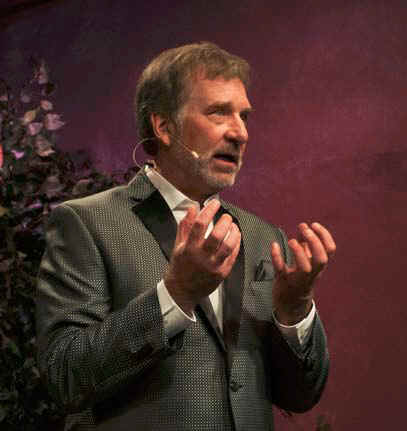 We're
going to work with fantasy. We're going to work with this openness, and you are
going to feel crazy. Just like I said before sacred and scared are very
closely related. You're going to feel uncomfortable. You're going to feel
like, “Oh, this isn't for me. This is child's play. We're making this
up.” I want you to take a deep breath. I want you to stop for a moment.
What other door do you have? What other door do you have to get beyond a
very limited and now turning in-humane world? What other door do you have
for going beyond?
We're
going to work with fantasy. We're going to work with this openness, and you are
going to feel crazy. Just like I said before sacred and scared are very
closely related. You're going to feel uncomfortable. You're going to feel
like, “Oh, this isn't for me. This is child's play. We're making this
up.” I want you to take a deep breath. I want you to stop for a moment.
What other door do you have? What other door do you have to get beyond a
very limited and now turning in-humane world? What other door do you have
for going beyond?
Fantasy is right here. It's available. And it's that passageway, that passageway out of the zoo. It's going to cause you to wonder, “What's going to happen? In a way, it was safer in the zoo, because all the animals were caged. What happens out here?” I'll give you one small clue. You've been there before. It's actually your real home out there, not in the zoo. It's not really an unknown world. It just hasn't been terribly conscious lately; lately meaning like the last five million years (some chuckles). You just haven't been real familiar with it.
So let's take a good deep breath. Let's have the house lights down. Fantasy. Turn the heat up one degree. We're freezing out our attendees here today. We're going to cause them to leave before their good time.
Let's take a good deep breath and relax. Yes, put your jackets on. Okay. We got the heat up? Joe? Let's just turn the AC off altogether. We don't like the noise. Okay. You've got to be comfortable to be able to be in fantasy.
And by the way, a few of you, I didn't say sexual fantasy. I just said fantasy (laughter). God! There's always a couple, always a couple. Sorry, Sart.
SART: Yeah!
ADAMUS: Sorry (Adamus laughs).
Into Fantasy
Let's take a good deep breath and let's have some music here and just relax. Relax.
You know, there's a world out there – it's always been out there …
(music begins)
… that's beyond just thought, that's beyond the routines and the worries of life. There's what they call fantasy, but it's actually reality. I like saying fantasy because it gives you permission to get out of your mind. And maybe to you fantasy means unicorns and elves, gnomes. That's part of it. They're real. They actually are very, very real.
Fantasy can be science fantasy, kind of like science fiction. Science fantasy when we talk about Timespace moving through you. Most people would say “That's fantasy. That's all just making it up,” but it's not. And the thing I love is that you know, intuitively know, that it's real.
Fantasy is where you can expand yourself. Not yourself meaning just more human self, but your I Am Self. You realize how hard it's been for the I Am consciousness of you to have been locked in that cage in the zoo for so long? It couldn't tolerate it anymore. It just couldn't. And all that gnawing at you, all that irritation, all that impatience and the angst, it was a good thing. That was a good thing, believe it or not – all of the health issues and the wealth issues and everything else – because it kept you from immersing deeper into that little smelly cage in the zoo.
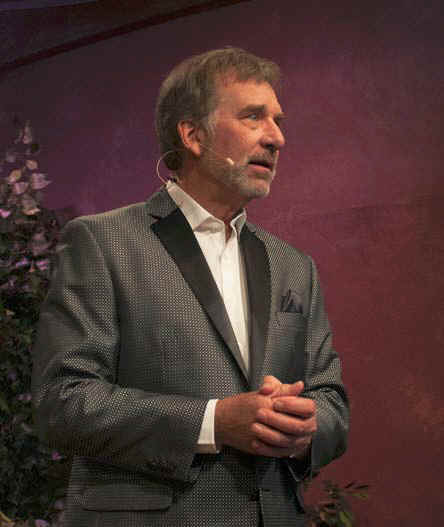 It
was You. It was the I Am saying, “This isn't right. This isn't right.
There's more.”
It
was You. It was the I Am saying, “This isn't right. This isn't right.
There's more.”
It kept you from going into more and more and more lifetimes of limitation, of mass consciousness, of being a caged animal, of being in an in-humane world. In a way, all that was a blessing. There are others who are so sleep, so content with their cage, but not you. You say, “There's more. There's got to be more.” And there is.
You can't get there by thinking your way there. You can't get there from within. So you finally come to the point of just allowing. You come to the point of fantasy.
I can already hear the words, people outside of Shaumbra, Crimson Circle, they're saying, “Oh, look at them. Fantasy. They're going to make stuff up.” No. No. Just coming back to you. Just coming back to you.
You see, because in this fantasy we're not pulling in anything else. We're not bringing in outside forces and sacred crystals and archangels and any of the rest of that. This one is just about you, coming back to you.
You've gone out searching and what you found was your Self.
You've gone out in a long search trying to find answers to the meaning of life, answers to creation, answers to the problems, and what you found was your Self. Not the selfish human self, that little human self who thinks it should walk through walls. No. The little human self that thinks it's going to teleport itself to the other side of the world with its body and mind. No. No. The little human self who wants to rub its hands and say some magic words and suddenly gold will appear. No. That's just polishing the bars of the zoo and the cage. No.
What's out there, what lies beyond, what is in fantasy – which means just more, not more of the same, but more; what lies out there is not just a cleaned-up human, a human that doesn't age or a human that doesn't ever get sick. No. What lies out there is You beyond humanness. You'll still be human. It's the “and.” But what lies out here is where you don't have to think. Where you don't have to think anymore.
Now, some people would be very frightened of that. But you get out here in fantasy and realize you don't have to think and plan and work so hard and effort and use power.
Out here it just is. There are no battles. There are no fights. There are no puzzles. There are no secrets. There is no complexity of the mind.
Out beyond, in this place of fantasy, you realize that there's no doing things right or wrong. There's experience, of course. But there's no doing it right or wrong.
Out here there's no body to worry about, no physical body to worry about.
Out here it is so creative, so brilliantly creative that whatever comes from your heart, it then comes to be. That's creativity – consciousness shining upon the screen of bon, calling forth all the energies so that you can experience your Self.
You're not going to get there by thinking your way, by uncovering any great secrets or mysteries or any of the rest of that. It's just about fantasy.
You are going to be challenged with the thoughts – “Well, am I just making this up? Is this just a diversion or a distraction? Is this really doing anything?”
It's totally up to you. My job is just to show you that doorway, show you that there is a whole other world, a whole other consciousness, a whole other way of being. And all you have to do is let yourself experience it. Fantasy.
The human is going to say, “Well, what does that mean? How do I do it?” Shh! Fantasy.
(pause)
I had to spend a little time considering what's the best word, what was that doorway. Then I felt into all of you and felt into Shaumbra around the world and it was kind of the one common word; a word that makes you smile, a word that, in a way, brings you back to a lot of childhood memories. Oh! Some of the great fantasies that you had as a child, and they were real.
I guess you could say things are kind of coming full circle. A childhood fantasy, openness – as a child you didn't think through everything, you didn't angst over everything; you just went out and experienced it – and we come kind of back, but in a different way.
So we come to a point here, saying, are you going to be willing to give yourself permission to be in a world of fantasy? It doesn't mean getting rid of the old world. You're still going to have your human stuff, but do you give yourself permission? Oh! Some of you are thinking so hard right now.
Are you going to give yourself permission to also be outside the zoo, to also be in fantasy?
You say, “Well, what's that going to do? What's that going to do to my thoughts? What are others going to think of me? Will it affect my health? Will I get stuck out there? Will I love that fantasy world so much that I don't come back? Will I be delusional? Will I go off the cliff in my little fantasies?”
My friends, the alternative is just going back to the zoo, having them close the gate behind you, go into your little cage – that putrid little cage – having them throw some scraps of food at you every day, locking the door. That's the alternative. I don't think any of you are ready for that; otherwise you wouldn't be here.
Fantasy is allowing, but allowing outside the limits of that limited human.
(pause)
You got so good at this game of living in the zoo, so very good at it. So you're going to be challenged now with going into this fantasy. A little bit challenged. What to do? You're going to try to do both. Not in an “and” way, but you're going to like fantasize once in a while, and then get pulled right back into it. The beautiful thing about Shaumbra fantasy, about this doorway is once you really let yourself experience it, you'll realize how freeing and liberating it is.
You'll realize how the real psychotics are the ones who live in the zoo and never try to escape. That's psychotic.
So this would be a great time and place, if you so choose, to give yourself permission to be in fantasy, as well as the regular world, but to also have fantasy beyond. And the beautiful thing about it is you don't have to do anything. It comes to you.
Remember what we talked about last month? It comes to you.
You don't have to sit there and work at it. It comes to you.
So, are you ready?
Let's take a good deep breath, a good deep breath.
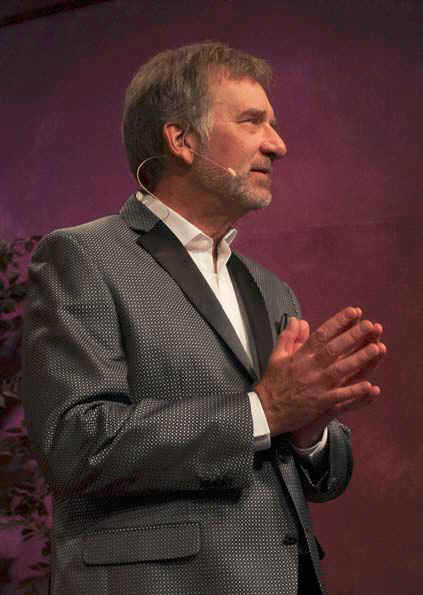 Good
deep breath. Oh!
Good
deep breath. Oh!
I want to give special thanks to Pete for being here. He says he will be coming back to the Shouds – you don't need to save a seat for him, he'll hover – a very special thanks to him and for the work that he's going to be doing helping, assisting, kind of being there.
One of the greatest challenges in this whole thing is that gravity, that suction that's created that keeps you in but yet the desire to get out, and then caught in the middle, feeling like you're going crazy. You're not. You're not at all, absolutely not.
So let's take a good deep breath, Shaumbra. Feel the energies of the day. Oooof! And, with that, let's say these last words together. As always …
ADAMUS AND AUDIENCE: All is well in all of creation.
ADAMUS: Thank you. Thank you (audience applause).
* * * * * * * * * * * * * * * * * * * * * * * * * * * * * *
Please freely distribute this text, in its entirity, on a non-commercial, no-charge basis, including these notes. All other uses must be approved in writing by Geoffrey Hoppe,Golden, Colorado.
See contacts page on website: www.crimsoncircle.com
© Copyright 2015 Geoffrey Hoppe, Golden, Colorado USA 80403